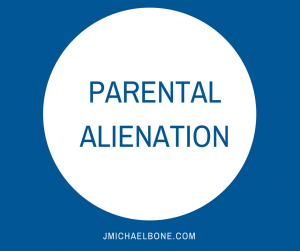Parental alienation is a serious concern in divorce and child custody cases, particularly in Illinois, where courts prioritize the best interests of the child. It occurs when one parent intentionally or unintentionally manipulates a child to reject, fear, or distance themselves from the other parent, damaging their relationship. This behavior can have profound emotional and psychological effects on both the child and the targeted parent, often complicating custody arrangements and parenting time disputes. Understanding how Illinois law addresses parental alienation is crucial for parents navigating divorce or custody proceedings.

In Illinois, parental alienation is not explicitly defined as a standalone legal term but is recognized as a form of emotional abuse that undermines a child’s well-being. Courts view it as contrary to the child’s best interests, as it disrupts the fundamental right to a loving relationship with both parents. The Illinois Marriage and Dissolution of Marriage Act (750 ILCS 5/) emphasizes the importance of both parents fostering a close and continuing relationship with their child. When one parent engages in alienating behaviors—such as disparaging the other parent, interfering with parenting time, or manipulating the child’s perceptions—the court may intervene to protect the child and the targeted parent’s rights.
Signs of parental alienation include a child expressing unjustified disdain or hatred toward one parent, mimicking the alienating parent’s negative sentiments, refusing visitation without valid reason, or showing unreasonable fear of the targeted parent. These behaviors often stem from actions like bad-mouthing, false accusations, or limiting contact with the other parent. Illinois courts rely on evidence, such as documentation, police reports, witness testimony in court appointed GALs, or evaluations from mental health professionals, to identify alienation.
Illinois law provides several remedies to address parental alienation. Courts may modify parenting time or parental responsibilities if alienation is proven, prioritizing arrangements that promote the child’s best interests. In severe cases, courts may reduce the alienating parent’s parenting time or mandate counseling to address harmful behaviors. A notable case, In re Marriage of D.T.W. (2011), demonstrated this approach, where the court granted sole custody to the targeted parent after evidence showed the other parent’s alienating actions.
The concept of Parental Alienation Syndrome (PAS), introduced by Dr. Richard Gardner, remains controversial in Illinois, and it is our experience that many GALs and judges do not fully understand this phenomenon. While PAS has been acknowledged in cases like In re Marriage of Bates (2004), courts avoid relying on it as a formal diagnosis due to its lack of recognition in psychiatric communities, though the DSM has introduced related diagnostic codes that fit the dynamic to some degree. Judges focus on observable behaviors and their impact on the child, guided by statutory factors like each parent’s willingness to encourage a relationship with the other, along with input from clinicians and experienced GALs.
Parents suspecting alienation should act swiftly by documenting incidents, maintaining consistent communication with their child, and consulting an experienced family law attorney. Keeping detailed records of interactions, such as texts, emails, or visitation requests, can strengthen a case. Seeking therapy for the child or family can also help mitigate the emotional toll and demonstrate a commitment to the child’s well-being. Illinois courts may order reunification therapy to repair the parent-child bond, particularly when alienation is identified early.
Preventing parental alienation requires both parents to prioritize their child’s emotional health over personal conflicts. Illinois law encourages cooperative parenting plans that outline clear expectations for communication and decision-making, reducing opportunities for manipulation. By fostering open dialogue and avoiding disparaging remarks, parents can model healthy behavior and protect their child from the lasting harm of alienation.
If you’re facing parental alienation in an Illinois divorce or custody case, consulting a skilled family law attorney is essential. We can guide you through gathering evidence, navigating court processes, and advocating for your parental rights. We are committed to helping you protect your relationship with your child and achieve a resolution that serves their best interests. Contact us today for a consultation to discuss your case and explore your legal options.
 Illinois Divorce Lawyer Blog
Illinois Divorce Lawyer Blog

